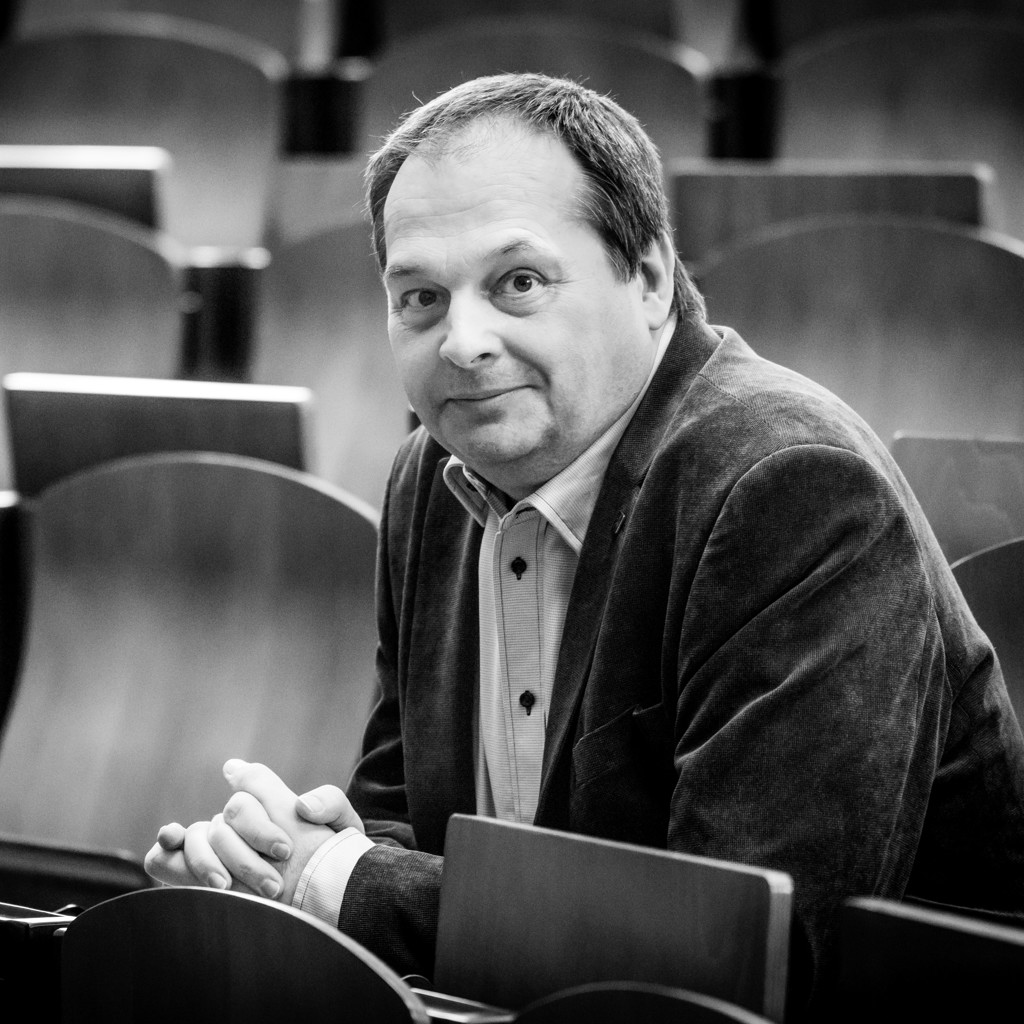Igor Jex
Czech Technical University in Prague, Czech RepublicFor contributions to the applications of optical networks in quantum optics, in particular, for their use for quantum state measurement and in implementing quantum walks using the optical feedback loop.

As Dean of the Faculty of Nuclear Sciences and Physical Engineering at Czech Technical University in Prague, Igor Jex often finds himself often caught up in administrative duties, but he still teaches several courses and conducts research on campus and with collaborators around the world. He believes collaboration is extremely important and is crucial to his success as a scientist.
Growing up, Igor originally wanted to find treasures as an archaeologist, specifically an Egyptologist. His parents discouraged that path, so he turned to physics. With help and guidance from his elementary and high school physics teachers, he found that he was quite good at it and continued in the field.
Slovak by birth and born in Bratislava, he was able to watch shows broadcast from Austrian television. This included episodes of Star Trek, which fostered his love for science and turned him into a self-proclaimed “Trekkie”. Growing up and beginning his career in a socialist system, he faced several obstacles. He had to complete one year of compulsory military service, which delayed the start of his scientific research. In addition, he faced a system of regulated housing, which made it difficult for his career to take off, as he could not easily establish himself and his family in a place where a job was available. One could not just pick up and relocate to different city for work because there might not be housing in the new city.
Following the 1989 Velvet Revolution, he was able to travel extensively abroad and worked in Japan, German, and Finland. Now, as an established researcher, he finds there are fewer obstacles except for the common one of strong competition for limited funding.
Igor collaborates with a number of researchers around the world in places such as Budapest, Ulm, Darmstadt, Glasgow, and Heraklion. He works in theoretical quantum optics and one of his collaborations is with OSA Member Dr. Christine Silberhorn at Universität Paderborn in Germany. In this collaboration, Dr. Silberhorn’s group conducts the experiments, and Igor’s group develops the theory behind the experiments.
Igor encourages students and other researchers to connect with people who do work that interests them. “Dream and make your dreams come true” he tells his students. Following your passion can spark ideas and good ideas can come from anywhere.
One of his long-term goals, with the help of collaborators, is to create a light-based quantum simulator. Although they have not reached the end goal yet, a number of exciting results developed along the way have advance the field. In addition to hands-on research, Igor is interested in history. One of the courses he teaches is a history of physics. He has written biographies on Max Planck and Ludwig Boltzmann and considers these men “revolutionaries” in the field.
Igor’s career was also influenced by the late Professor Stig Stenholm (Finland), Professor Harry Paul (Germany). Professor Wolfgang Schleich (Ulm), and Professor Steve Barnett (Glasgow). He kept in touch with them throughout his career which encouraged the exchange of scientific ideas and also provided a place to talk about other topics such as politics and life as a scientist.
Igor’s first interaction with OSA was through the articles he read in the Journal of the Optical Society of America (JOSA). He viewed JOSA as the “crème de la crème” and always saw OSA as the mark of quality in the field. His goal was always to be good enough to be recognized by OSA. As a 2018 Fellow, he has achieved this goal.
To find out more about Igor and his research, please visit his website.
Profile written by Jeanette Gass.
